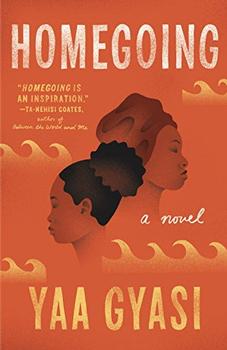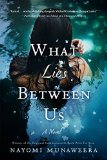Summary | Excerpt | Reading Guide | Reviews | Beyond the book | Read-Alikes | Genres & Themes | Author Bio

A Novel
by Dinaw MengestuA haunting and powerful first novel that views the streets of Washington, D.C. and Addis Ababa through the eyes of Sepha who, seventeen years ago, fled Ethiopia during the Revolution, and now runs a failing convenience store in a poor African-American neighborhood in Washington. Published as The Beautiful Thing That Heaven Bears in the USA, Canada and Australia; and as Children of the Revolution in the UK.
Seventeen years ago, Sepha Stephanos fled the Ethiopian Revolution after witnessing soldiers beat his father to the point of certain death, selling off his parents' jewelry to pay for passage to the United States. Now he finds himself running a grocery store in a poor African-American neighborhood in Washington, D.C. His only companions are two fellow African immigrants who share his feelings of frustration with and bitter nostalgia for their home continent. He realizes that his life has turned out completely different and far more isolated from the one he had imagined for himself years ago.
Soon Sepha's neighborhood begins to change. Hope comes in the form of new neighbors-Judith and Naomi, a white woman and her biracial daughter-who become his friends and remind him of what having a family is like for the first time in years. But when the neighborhood's newfound calm is disturbed by a series of racial incidents, Sepha may lose everything all over again.
Told in a haunting and powerful first-person narration that casts the streets of Washington, D.C., and Addis Ababa through Sepha's eyes, The Beautiful Things That Heaven Bears is a deeply affecting and unforgettable debut novel about what it means to lose a family and a country-and what it takes to create a new home.
Published as The Beautiful Thing That Heaven Bears in the USA, Canada and Australia; and as Children of the Revolution in the UK. Winner of the Guardian (UK) 2007 book award.
Mengestu's African characters are nuanced and his theme of living between two worlds is both unique to his protagonists and universal - only the person who has lived their entire life in a small community and never desired for something different does not know that feeling to some small degree. Added to which, there has been relatively little written about immigration by contemporary African writers. We are awash (and happily so) in novels by Asian writers, in particular from India, but have heard little from the vast and diverse African continent...continued
Full Review
(1070 words)
This review is available to non-members for a limited time. For full access,
become a member today.
(Reviewed by BookBrowse Review Team).
This "beyond the book" feature is available to non-members for a limited time. Join today for full access.

If you liked The Beautiful Things That Heaven Bears, try these:

by Yaa Gyasi
Published 2017
Winner of the 2016 BookBrowse Debut Author Award
A novel of breathtaking sweep and emotional power that traces three hundred years in Ghana and along the way also becomes a truly great American novel. Extraordinary for its exquisite language, its implacable sorrow, its soaring beauty, and for its monumental portrait of the forces that shape ...

by Nayomi Munaweera
Published 2017
From Nayomi Munaweera, the award-winning author of Island of a Thousand Mirrors, comes the confession of a woman, driven by the demons of her past to commit a single and possibly unforgivable crime.



Never doubt that a small group of thoughtful, committed people can change the world...
Click Here to find out who said this, as well as discovering other famous literary quotes!